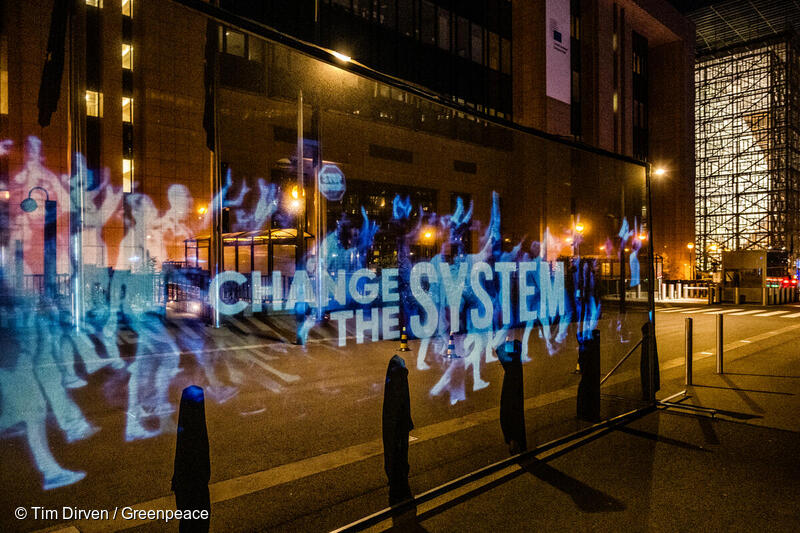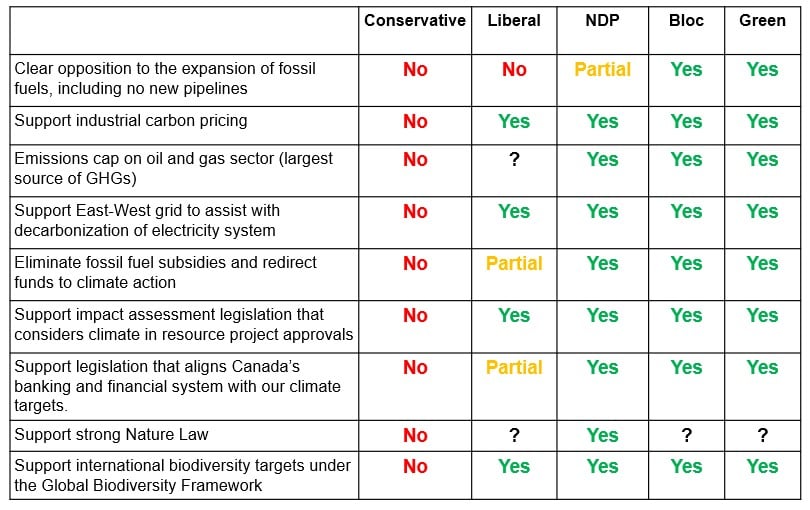
Lately, talk of system change is everywhere.
From youth climate strikers calling to transition our economy from fossil fuels to clean energy. From Black Lives Matter supporters calling to end systemic racism and defund the police. From mistreated migrant workers calling for proper employment standards.
… but what exactly does it mean?
Simply put, system change is the process of changing the organization, patterns, structures, rules or purpose of a system. Systems, like our economy, are designed to do something.
What does our economic system do? It manages resources, goods and services in a way designed to concentrate wealth and power in the hands of a chosen few. The profit-at-all-costs mentality that underpins this system has allowed big corporations to trash nature and endanger our climate for their own gain. It’s also allowed them to get away without paying workers a living wage and to use their power to lobby governments to make decisions that make them money instead of fighting racism or ending inequality.
But now, the ground is shifting.
People from all walks of life are coming together. As my colleague Lagi at Greenpeace Africa wrote, covid-19 “is a wake-up call that has shaken every pillar of our society and our way of life unlike anything I have ever experienced.” How very broken our system truly is has been fully exposed … and we now have the chance to reimagine everything. Start fresh. Build back better. Build back together.
Systemic problems can’t be fixed by just getting rid of “a few bad apples in the bunch.” The problems we’re facing — climate change, inequality, racism — are deep and complex. We need to reprogram the system’s rules, organization and values to produce new and better outcomes.
Learn more about systems and system change in this article by the School of System Change or by watching the video below.
Why is Greenpeace advocating for system change now?
At Greenpeace, we believe in the power of people shifting their mentalities, and in challenging the prevailing power structures in society. Our critics often rail back at us, saying that these big systems hold everything together — that what’s normal is desirable and impossible to change. But now we are suddenly seeing those systems crack apart.
Our best chance to make sure our planet doesn’t become another victim of COVID-19 is to make sure that the federal government’s plans for a long-term economic recovery kickstart a new, better normal. This means addressing the root causes that have left us vulnerable to crises like the pandemic and climate change.
How can a green and just recovery from covid-19 create system change?
As the pandemic unfolded, Prime Minister Trudeau himself posed this question:: “We should always take advantage of moments of crisis to reflect: Can we change the system to do better?”
Yes, we can. Below are some ideas that could spark system change and usher in a healthy, equitable, sustainable and peaceful society … if Prime Minister Trudeau is courageous enough to act on them.
Invest in green energy and low-carbon living:
The federal government should rewrite rules that encourage the expansion of pollution. It should invest in rebuilding our cities so our transportation systems and our housing is low-carbon (read more in the Hill Times). Good-sense policies in this area include:
- Free, expanded and electrified public transit.
- Moving to 100% renewable energy by investing in renewables, energy efficiency and meeting new electricity demand (such as for e-transit) with zero-carbon sources.
- Affordable, low-carbon social housing, especially for low income and Indigenous communities.
Centre socio-economic justice and “social infrastructure”:
This means respecting the rights of the poor and racialized communities our current economic system is designed to fail (in favour of better outcomes for white, wealthy communities). Policy choices to fix this include:
- Instituting a living wage, universal basic income and wealth tax on Canada’s wealthiest people and companies.
- Uphold the recommendations of Black Lives Matter, such as defund the police, and the #StatusForAll migrant workers movement, including the provision of adequate health and social safety nets.
- Respecting Indigenous law, act on the recommendations of the Truth and Reconciliation Commission and legislate the UN Declaration on the Rights of Indigenous Peoples.
- Enduring national child care funding and that women’s care work is properly paid and that recovery measures include women (especially women of colour) hardest hit by the “she-cession”.
Build a circular economy:
Right now, our economy is based on a “take make-waste” model: companies take the natural resources they want, make things to sell for profit, and then consumers deal with the waste. A circular economy avoids wasteful consumerism. It focuses on the responsible use of natural resources, repairing and reusing existing goods and materials, and ending disposable consumption — nothing goes to landfill. To build toward this, government should:
- Support measures such as creating innovations funds for zero-waste supply chains, reuse/refill/repair business models and shareable libraries of “things” (like tools).
- Support a just transition for petrochemical and plastics workers to ensure they are able to benefit from the transition to a circular economy.
Invest in natural solutions:
Investments in protecting and restoring diverse ecosystems, from forests to wetlands, prairies to oceans, cities to countryside, can create good green jobs for people in rural, remote and urban communities. This would also protect biodiversity and help fight climate change by storing more carbon in natural ecosystems.
What kind of green jobs, you ask? Good question! “Shovel-ready” ideas include:
- Funding the creation of a federal program that hires people to restore critical habitats and ecosystems.
- Grants and financing for community gardens, agroforestry, cover cropping, regenerative organic farming, and fencing and replanting of streams, wetlands and marginal lands.
Want to dive deeper? Check out Greenpeace’s detailed public discussion paper below:
Building Back Better: Greenpeace Canada Policy Proposals for a Green and Just Recovery




